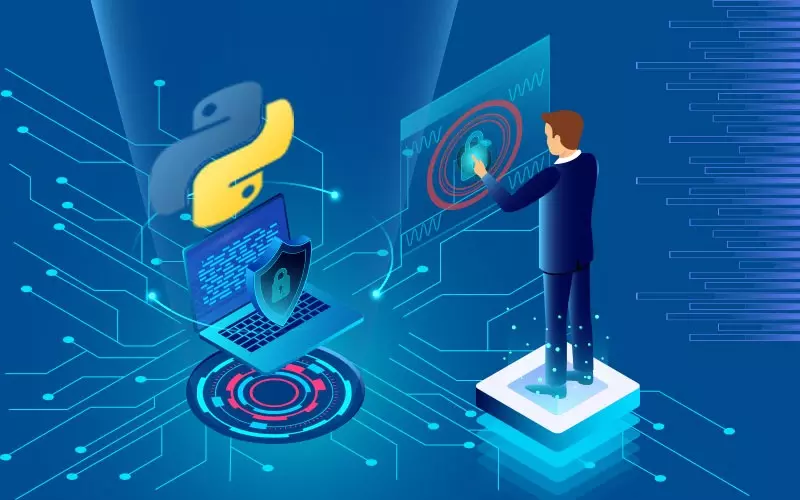Who is Eligible to Learn Python?
Python, a versatile and powerful programming language, has gained immense popularity in recent years. Its simplicity and readability make it an ideal choice for beginners and experienced programmers alike. Whether you are a budding developer, a seasoned professional, or simply someone with an interest in coding, Python offers a wide range of opportunities. In this article, we will explore who is eligible to learn Python and how it can benefit different individuals.
Introduction
Python’s accessibility and versatility have made it a popular choice for various domains. Let’s explore who can benefit from learning Python and how it can open up new opportunities.
Python for Beginners
Python is an excellent language for beginners due to its clean syntax and easy-to-understand code structure. Its readability and simplicity make it an ideal choice for individuals who are new to programming. Whether you are a student or a hobbyist, Python provides a gentle learning curve, allowing you to grasp fundamental programming concepts quickly.
Python for Students
Python is widely used in educational institutions to teach programming concepts. Its beginner-friendly nature and extensive documentation make it an excellent choice for students of all ages. Python’s versatility allows students to explore various domains, including data analysis, web development, and artificial intelligence.
Python for Professionals
Python is not limited to beginners and students; it is equally beneficial for professionals. Whether you are a software developer, a data analyst, or a system administrator, Python can enhance your productivity and simplify complex tasks. Its vast ecosystem of libraries and frameworks empowers professionals to develop robust applications and automate repetitive processes.
Python for Data Scientists
Python has become the de facto language for data science and analytics. Its libraries, such as NumPy, Pandas, and Matplotlib, provide powerful tools for data manipulation, analysis, and visualization. Data scientists can leverage Python’s capabilities to extract insights from large datasets, build predictive models, and make data-driven decisions.
Python for Web Developers
Python’s simplicity and versatility make it an excellent choice for web development. Frameworks like Django and Flask enable developers to create scalable and secure web applications rapidly. Python’s integration with other technologies, such as HTML, CSS, and JavaScript, makes it a preferred language for full-stack development.
Python for Automation and Scripting
Python’s ability to automate repetitive tasks and write scripts efficiently has made it a favorite among system administrators and DevOps professionals. With libraries like Paramiko and Fabric, Python simplifies network automation and server management. Its cross-platform compatibility further enhances its usefulness in automation and scripting.
Python for Machine Learning and Artificial Intelligence
Python’s rich ecosystem of libraries, including TensorFlow, Keras, and scikit-learn, makes it a leading language for machine learning and artificial intelligence. From building neural networks to implementing complex algorithms, Python provides the tools and frameworks necessary to develop intelligent systems and make advancements in AI research.
Python for Ethical Hackers
Python’s versatility extends to the field of cybersecurity. Ethical hackers and cybersecurity professionals often rely on Python for various tasks such as vulnerability scanning, network analysis, and exploit development. Python’s extensive library support, along with frameworks like Metasploit, makes it an essential tool for penetration testing and identifying security vulnerabilities.
Python for Game Development
Python offers a range of libraries and frameworks, such as Pygame and Panda3D, that cater to game development. It provides a simplified approach to creating games, allowing developers to focus more on the gameplay and logic rather than low-level details. Python’s readability and ease of use make it an attractive choice for game developers, both beginners and experienced alike.
Python for Raspberry Pi
Raspberry Pi, a popular single-board computer, is widely used for various projects. Python serves as the official programming language for Raspberry Pi due to its simplicity and compatibility. Whether you want to build a home automation system, a media center, or a robotics project using Raspberry Pi, Python provides the necessary tools and libraries to bring your ideas to life.
Python for Internet of Things (IoT) Projects
The Internet of Things (IoT) has revolutionized the way we interact with everyday objects. Python plays a significant role in IoT projects, offering libraries like MQTT, GPIO Zero, and Twisted, which enable communication with IoT devices and sensors. Python’s simplicity and versatility make it an ideal choice for building smart home systems, environmental monitoring solutions, and more.
Python for Robotics
Python’s ease of use and powerful libraries, such as ROS (Robot Operating System) and PyRobot, make it a valuable language for robotics enthusiasts. Python enables developers to control robots, implement computer vision algorithms, and perform complex calculations required for autonomous navigation. With Python, the possibilities in the field of robotics are vast.
Python for System Administrators
Python simplifies system administration tasks by providing libraries and modules for managing servers, automating backups, and handling system configurations. Its ease of use, combined with its extensive standard library, makes Python an efficient choice for system administrators who want to streamline their workflow and improve productivity.
Python for Cybersecurity Professionals
Cybersecurity professionals benefit from Python’s flexibility and robustness. Python can be used for tasks like analyzing network traffic, developing security tools, and conducting digital forensics. Its simplicity and readability make it easier to write and maintain secure code, ensuring the integrity of cybersecurity systems.
Conclusion
In conclusion, Python is a versatile programming language that caters to a wide range of individuals. Whether you are a beginner, student, professional, or enthusiast in various domains, Python offers opportunities to enhance your skills and explore new horizons. Its simplicity, readability, and extensive library support make it a powerful tool for beginners and experienced programmers alike.
FAQs
- Is Python suitable for beginners?
Yes, Python is widely regarded as a beginner-friendly language due to its simplicity and readability. It provides an excellent foundation for learning programming concepts.
- Can Python be used for web development?
Absolutely! Python offers frameworks like Django and Flask that simplify web development tasks and allow developers to build scalable and secure web applications.
- Is Python used in data science?
Yes, Python is extensively used in data science and analytics. Its libraries like NumPy and Pandas provide powerful tools for data manipulation and analysis.
- Can Python be used for game development?
Yes, Python has libraries like Pygame and Panda3D that make game development accessible to developers. It’s a great language for both beginners and experienced game developers.
- How can Python be beneficial for cybersecurity professionals?
Python provides extensive support for cybersecurity tasks such as vulnerability scanning, network analysis, and exploit development. Its rich library ecosystem and frameworks like Metasploit make it a valuable tool for ethical hackers and cybersecurity professionals.
- Can Python be used for robotics projects?
Absolutely! Python offers libraries like ROS (Robot Operating System) and PyRobot that enable developers to control robots, implement computer vision algorithms, and perform complex calculations required for robotics projects.
- Is Python suitable for system administration tasks?
Yes, Python simplifies system administration tasks by providing libraries and modules for server management, automation, and configuration. It can streamline workflow and improve productivity for system administrators.
- What makes Python a suitable language for IoT projects?
Python offers libraries like MQTT, GPIO Zero, and Twisted that enable communication with IoT devices and sensors. Its simplicity and versatility make it an ideal choice for building IoT solutions.
- Can Python be used in machine learning and artificial intelligence?
Absolutely! Python has a rich ecosystem of libraries and frameworks like TensorFlow, Keras, and scikit-learn that make it a leading language for machine learning and AI development.
- How can Python benefit students in their learning journey?
Python’s simplicity and readability make it an excellent language for students to learn programming concepts. Its wide range of applications in various domains allows students to explore different areas of interest.




